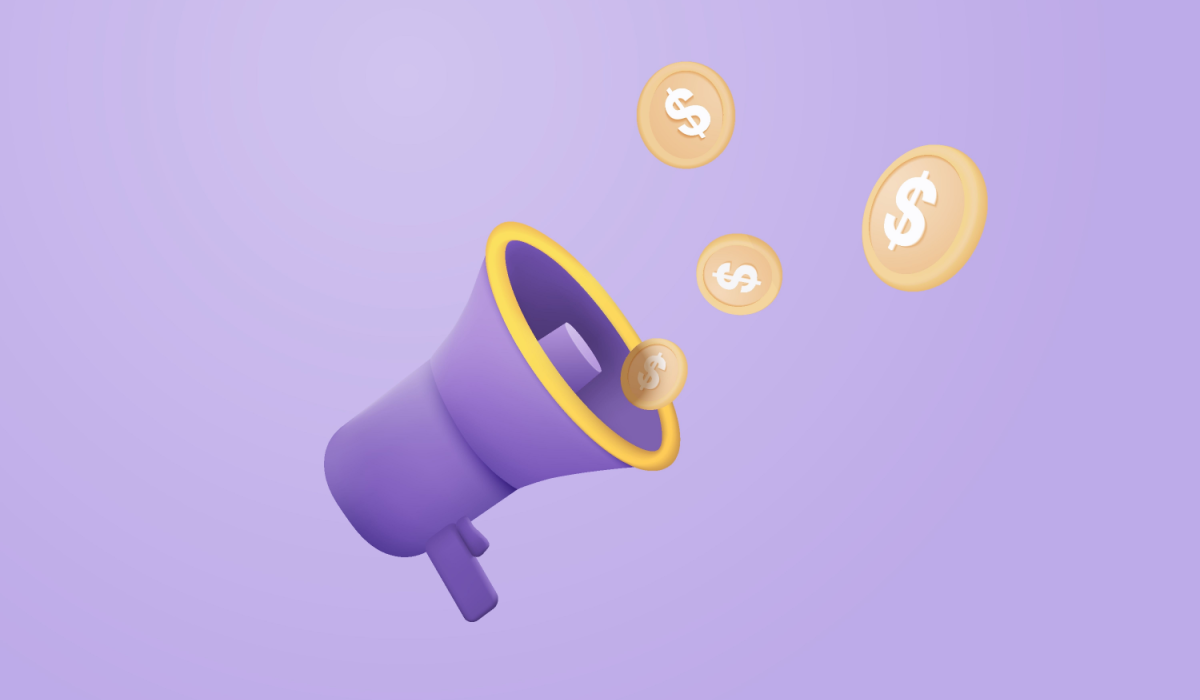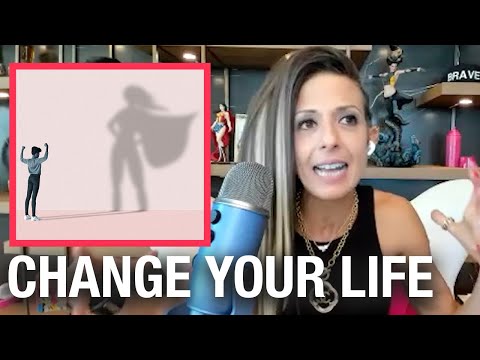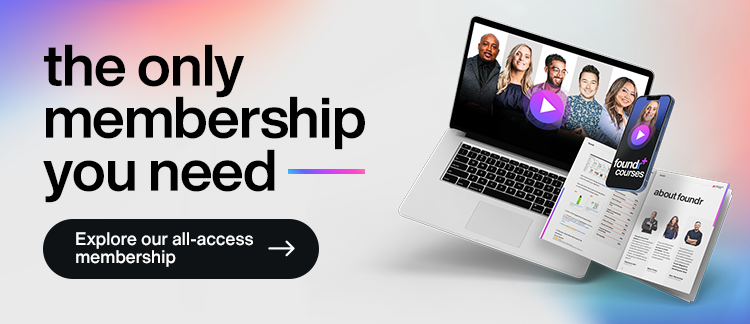Ask the average person, and they’ll tell you their greatest fear is public speaking. Ask the average public speaker, and they’ll tell you their greatest fear is asking to get paid to speak. But how much do you charge for public speaking?
People whose careers involve some form of public speaking—writers, entrepreneurs, consultants, etc.—often worry about insulting event organizers or getting turned down if they quote too high a rate, or any rate at all. After all, is 20 to 45 minutes of your time really worth hundreds or even thousands of dollars?
The answer is: absolutely.
Imagine you’re a conference attendee. You’ve bought your ticket, booked your hotel room and flown across the country to attend the biggest industry event of the year. You join hundreds of other folks in the main auditorium, excited to get started.
Now imagine the lights dim and the keynote address begins—with a pre-recorded video projected on a giant screen. In fact, every presentation is a pre-recorded video. Over the course of three days, you’re stuck sitting for hours in an uncomfortable folding chair, passively absorbing content that you could have watched from the coziness of your couch at home.
How likely would you be to return the following year or recommend that others pay thousands to attend a future conference? (The correct answer is zero percent).
Compelling, highly respected speakers with great stories and powerful insights drive the value of live events. They are why conference organizers can charge hundreds of dollars for admission.
In fact, most experienced public speakers, if they’ve written a book or established expertise in a specific area, can earn anywhere between $5,000 – $25,000 for a presentation.
That’s a wide range, and we’ll get into how to determine where your rates should be within that spectrum, but for now know that it’s possible to make a lot of money as a speaker, as long as you bring lots of value to the table.
We talk a lot about how much to charge for consulting on this blog, but a lot of consultants also make money and build their businesses with speaking engagements. This article will go into how much to charge for public speaking so it’s worthwhile to you and helps build your brand.
Do you have to be famous to charge a decent speaking fee?
We’ve all seen stories of famous politicians and athletes charging obscene amounts of money to give keynotes at events. How can they get away with charging six or even seven figures to give a talk?
Their fame is a key part of the value for the audience. If you’re a fan of LeBron James, it doesn’t matter if he’s the world’s most boring speaker, you’re going to attend the event just for the opportunity to be in the same room as him.
But fame is just one unique selling point.
The truth is, there are very few Le Bron James’s in this world. But there are plenty of folks like Jason Capital, a copywriter whose name you probably have never heard before, but who earns tens of thousands of dollars per speaking engagement.
Over time, Capital has made millions from speaking gigs, not because he’s famous but because he brings other unique selling points to the table:
- He has proven expertise in his field.
- He’s developed a platform and a message that frames his expertise.
- He’s an experienced speaker who constantly ups his game.
If you’re a founder of a business, whether a consultant or other business owner, and you want to start earning money with public speaking, there’s good news: you already have expertise in your field and your business is the platform through which you frame your expertise. All you need is a good message and excellent public speaking skills, both of which you can hone over time.
Do you have to be flawless to be a well-paid speaker?
The value of speaking isn’t just about having a warm body on a stage reciting a speech word for word for a certain amount of time. It’s about the quality of that time and the value you bring to the audience.
How engaging/informative/entertaining is your presentation? Will your audience leave changed after your speech is over? Do you connect with the audience on an emotional level? The better your presentation skills are and the more impact you create for your audience, the more you can charge.
Jason Capital says that the key to a great presentation isn’t in how the audience sees you, but in how much you focus on the audience’s needs.
“Every time I walk on stage, I’m not concerned about getting the words perfect,” he says. “I’m concerned with breathing life into the room and creating the most value possible for my audience. Obsess over the audience’s needs, and you’ll start going from apprentice to pro very quickly.”
How Much Should You Charge for Public Speaking?
Now that we’ve discussed the importance of audience value to a speaking engagement, let’s talk about how to monetize that value.
Here are some baseline ranges according to your level of experience:
- Fewer than three talks: $500 – $2,500 per talk
- 3 – 8 talks/proven expert/first-time author: $5,000 – $10,000 per talk
- 8 – 12 talks/micro-influencer (5K-100K followers)/multiple books: $10,000-$20,000 per talk
- 12+ talks/social media influencer (100K+ followers)/bestselling author – $20,000 – $35,000 per talk
But before you quote a dollar amount to an event organizer, it’s crucial that you get some fundamental questions answered.
1. What kind of presentation will I be giving?
Being invited to give a keynote speech means you’re the main draw for the event (which means you can charge at the high end of your range). Participating in a panel means you won’t have to prepare as much. Giving a talk or seminar will require a significant amount of preparation.
Also, whether your presentation is given virtually or in person will make a difference in the cost.
2. How large is the audience?
Knowing the number of attendees will help you determine the potential business outcomes of the event and if you should discount your fee according to the cost-benefit you’ll get (more on that in a minute).
3. Is there travel involved?
Travel expenses can be costly, but you also need to consider what time away from your business and your home will cost you.
“Dedicating one day (or more) to a conference (even without travel) is time away from my (paid) clients, from my business (lost productivity), and from family (also a cost),” says Peep Laja of ConversionXL. “My fees vary on event and availability. I charge more for corporate events and less for industry events. Typically it’s a flat fee plus flight and hotel.”
4. How long is the talk?
Most professional speakers have talks prepared that fit into a variety of timeframes, and charge tiered rates accordingly.
5. How long will it take me to prepare an original talk and slides?
This is important: You aren’t just charging for how long you’ll be on stage, but also how much work you put into a presentation. Just because you’ve presented the same talk before at a different venue doesn’t change the amount of work you’ve put into crafting that talk.
6. Will the event organizers share an email list? Is it an audience that can also benefit my business? How will my talk be promoted via social media/press release?
This information will impact your cost-benefit analysis. If your overall revenue from the event will be more than what you charge for speaking, or will offset how much you typically have to pay for marketing, you may want to consider discounting or waiving your fee.
How to Negotiate Your Speaking Fee
Notice that in the above questions, there’s no mention of an event’s budget for speakers. It’s rare for event organizers to be transparent about their speaking budget because they typically start booking speakers before they’ve sold tickets. They’re going to try to spend as little as possible to avoid the risk of going bust.
According to speaking bureau SpeakerHub, “You could simply ask them, but nine times out of ten, they will underquote. Instead, do your own research, and ballpark an appropriate figure.”
SpeakerHub advises that you check out how much they’re charging attendees and sponsors for the event and multiply it by their estimated attendance/sponsorship rate.
For example:
500 attendees at $300 each: $150,000
10 top-tier sponsors at $10,000 each: $100,000
15 middle-tier sponsors at $8,000 each: $120,000
20 low-tier advertisers at $5,000 each: $100,000
- Now add it all together to find the gross budget for the event: $470,000
- Assume 50% of the budget will go toward the venue – $235,000
- Then take another 50% out for additional costs, and you’re left with a $117,500 speaker budget.
- Now divide that by how many speakers they’ll have (let’s say they have 10 speakers), which means theoretically, they can pay $11,750 per speaker.
Should you quote that much if you’re a newbie? Probably not. But you can confidently quote the organizer a reasonable speaking fee without feeling like you’re robbing them.
Talk With Previous Speakers
Another, fairly straightforward way to get an idea of an event’s speaking budget? Ask other speakers how much they’ve been paid for the event. This will help you prepare your own expectations of what the organizers will be willing to say ‘yes’ to.
Nadya Khoja, Chief Growth Officer at Venngage Infographic Maker says using the whisper network is a tried and true way to negotiate confidently for a fair fee. Nadja says:
As someone who doesn’t have an agent (and my main source of income isn’t from speaking) my intention is often to speak as a source of possible business leads (either for consulting or for Venngage). This is an indirect way of getting revenue. However, when I know for a fact that a conference pays its speakers; which I usually find out because I know other speakers who have spoken there in the past, then it gives me some leverage. I can find out on average what others have been paid based on what they delivered, and use that to guide what I ask for. I typically give a range and tell them what an ‘average’ looks like, and potentially negotiate based on that.
Which brings me to another important point:
Should You Ever Speak at Events for Free?
You may hear some professional speakers pooh-pooh the notion of doing pro bono speaking engagements. But if you’re an expert in your industry or a representative of a company, an unpaid presentation or panel at a popular conference can be super lucrative.
The leads and professional contacts you can get from such events are often highly engaged and can end up either buying from you or inviting you to speak at more events.
“It comes down to simple math,” says Duct Tape Marketing founder John Jantsch in a recent post for the American Express blog. “In a typical sales job, you might come across 10 people in a day to present your ideas to. But when speaking at a conference, you put yourself in front of hundreds of potential leads to give your smart, educated speech to. It’s a pretty astounding difference when you do the comparison.”
Here are some things to consider if an event asks you to speak for free:
How much is it worth to you?
Moms Can & Co. founder Erica Peterson advises that you consider the monetary value of the opportunity before turning down an unpaid speaking gig.
I encourage people to speak frankly with those organizing events about getting paid. If they’re not able to pay you upfront, consider what other things you can leverage from the opportunity. For example, if you’re not getting paid, are they willing to share an email list of those attending your talk so you can promote your product or service? Consider the monetary value of that list. Or consider the monetary value of putting out Facebook ads for example. If their one tweet or share on LinkedIn puts your website in front of potential customers, that’s also worth something.
Will an unpaid engagement lead to paid speaking opportunities?
When you’re starting out as a speaker, it may be worth your while to cut your teeth and perfect your presenting skills before charging for speaking fees. Think of it as building your portfolio. You’re gaining experience and earning testimonials so you can prove your value when it’s time to ask for the big bucks.
“I have spoken for free and then been booked on a high-dollar stage and also got high-dollar coaching clients,” says speaking coach and TEDx speaker Sean Douglas. “Never discount the value of free events.”
Is there a purpose behind the event beyond a commercial benefit?
Sometimes, spreading your message is more important than potential financial gain. For example, many speakers will waive their fees for charity or educational events.
“The main point for me is how much impact will I have,” says Jo Salter, founder of ethical clothing brand Where Does It Come From? “For a charity or local sustainability group my fee would be much less or pro bono (depending on availability and location).”
Are the event organizers willing to cover your expenses?
If you have to travel for the event, it’s important to consider how much it will cost you out of pocket, even if there’s an opportunity to attract leads or earn paid speaking gigs.
The general consensus is, if an event isn’t willing to cover the expenses you’ll incur from participating as a speaker, don’t do it.
“As a business owner, there’s a real opportunity cost to being at a conference,” says Val Geisler, founder of Fix My Churn. “Conferences I’ve spoken at cover travel and accommodations (and give you a ticket to the conference, obviously) but don’t pay beyond that. I was recently asked to speak at a conference that didn’t cover anything at all and I declined.”
Ultimately, charging your public speaking rate comes down to value: the value of your content to your audience and the value of the event to your career and business growth.
As Nadya Khoja of Venngage says:
The more value you provide to an audience, the better your ratings become. If you can stand out and show people that you have a consistent track record of getting good feedback, you’ll be seen as more authoritative. Eventually, word spreads and you become more and more recognized and sought out. But also for me, as a relatively young marketer and a woman of color, it’s easy for people to try and convince you that your value isn’t there yet. Know your own value and worth, and be firm with your decisions. Usually, you need to start out with some unpaid work to build yourself up, but as long as what you deliver is relevant and engaging, you can quickly climb the ladder and being a thought leader people are paying to see.
How Much to Charge for Public Speaking FAQs
What types of public speaking fees can I charge?
There are different ways to charge for public speaking. First is a flat fee or day rate if you speak at a conference across multiple days. The second is a per-person fee based on the number of people attending the event. And last is an hourly rate, similar to a consulting price.
What's a public speaking travel fee?
A travel fee is an additional line item you can charge if you need to travel long distances or stay overnight. Many events will organize and pay for your travel ahead of time. But make sure that you confirm ahead of time. Once you get off stage, it will be harder to renegotiate your contract.
Should I give away something at a public speaking event?
If you’re promoting a book or have one available, giving away a copy for free to your audience is an easy to grow your brand and reinforce your message. Although you’ll take a loss on the printing, you can include that in your overall fee cost. Trinkets and pamphlets can be cute offerings, but ideally, your best value is what you say on the stage. Focus on your speaking. Everything else will get tossed in the trash.
{
“@context”: “https://schema.org”,
“@type”: “FAQPage”,
“mainEntity”: [
{
“@type”: “Question”,
“name”: “What types of public speaking fees can I charge? “,
“acceptedAnswer”: {
“@type”: “Answer”,
“text”: “There are different ways to charge for public speaking. First is a flat fee or day rate if you speak at a conference across multiple days. The second is a per-person fee based on the number of people attending the event. And last is an hourly rate, similar to a consulting price. ”
}
}
, {
“@type”: “Question”,
“name”: “What's a public speaking travel fee?”,
“acceptedAnswer”: {
“@type”: “Answer”,
“text”: “A travel fee is an additional line item you can charge if you need to travel long distances or stay overnight. Many events will organize and pay for your travel ahead of time. But make sure that you confirm ahead of time. Once you get off stage, it will be harder to renegotiate your contract. ”
}
}
, {
“@type”: “Question”,
“name”: “Should I give away something at a public speaking event? “,
“acceptedAnswer”: {
“@type”: “Answer”,
“text”: “If you’re promoting a book or have one available, giving away a copy for free to your audience is an easy to grow your brand and reinforce your message. Although you’ll take a loss on the printing, you can include that in your overall fee cost. Trinkets and pamphlets can be cute offerings, but ideally, your best value is what you say on the stage. Focus on your speaking. Everything else will get tossed in the trash. ”
}
}
]
}
Everything You Need to Build Your Business
Learn how to leverage your skills to start and build your business with foundr+. You’ll have all-access to proven frameworks, world-renowned instructors, and a global community of like-minded entrepreneurs. Click here to explore foundr+.
The post How Much To Unapologetically Charge For Public Speaking appeared first on Foundr.





